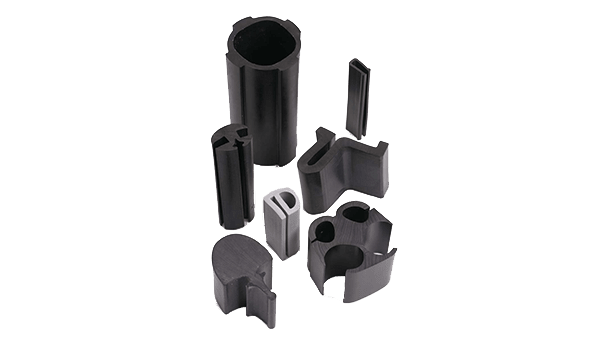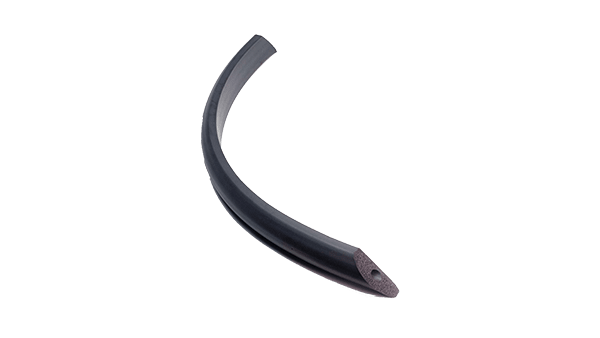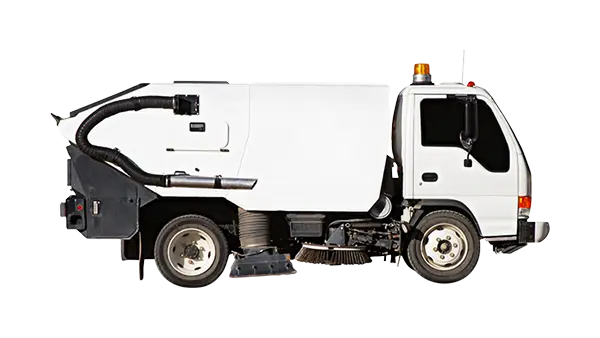
Neoprene Rubber Material Manufacturer
Gaskets, Seals, Tubing & More
From foam to solid sheets, neoprene rubber is a multipurpose elastomer that fits a wide variety of products thanks to benefits like oil and ozone resistance. Timco Rubber specializes in providing neoprene gaskets, seals, o-rings, and other parts for businesses in need of custom solutions for their applications.

What is Neoprene Rubber: A Solution for Oil and Ozone Resistance
Neoprene Rubber, also known as polychloroprene or PC Rubber, is an extremely versatile synthetic rubber offering oil, petroleum, and weathering resistance. These characteristics make neoprene a natural fit for the automotive world, where neoprene rubber applications are used for many exposed parts that can encounter oil or petroleum.
Neoprene’s resistances to both oil and weathering also make it a good fit for several other industries that require a reasonably priced, mid-performance polymer with a good all-around balance of performance properties. In addition to oil and weathering resistance, neoprene’s high tensile strength and low compression set make it a very attractive synthetic rubber for outdoor applications such as custom gaskets and seals. Thanks to these factors, a variety of markets can benefit from neoprene, including the mass transit, wire and cable, food preparation, and construction industries.

Neoprene Properties
- Common Name: Neoprene
- ASTM D-2000 Classification: BC, BE
- Military (MIL-STD 417): SC
- Chemical Definition: Polychloroprene
- Resistance
- Abrasion Resistance: Excellent
- Tear Resistance: Good
- Solvent Resistance: Fair
- Oil Resistance: Fair
- Aging Weather / Sunlight: Good
- Durometer (Hardness): Range 30-90 Shore A
- General Characteristics
- Tensile Range (P.S.I): 500-3000
- Elongation (Max %): 600
- Compression Set: Good
- Resilience /Rebound: Excellent
- Adhesion to Metals: Good to Excellent
- Temperature Range
- Low Temperature Usage: 10° to -50 F° | -12° to -46 C°
- High Temperature Usage: Up to 250 F° | Up to 121 C°

Neoprene Applications
Mass Transit Industry
- Window seals with a locking strip (window and door seal extrusions)
- Door and sensitive door seals
Automotive Industry
- Neoprene Hose Covers
- CVJ boots
- Power transmission belts
- Vibration mounts
- Shock absorber seals
- Breaking and steering system components
Construction Industry
- Window seals
- Window gaskets
- Highway and bridge seals
- Bridge bearing pads
- Washers
- Bridge stay-cable anchor components
- Deviator pads
- O-Rings
- Elevator astragals
Wire and Cable Industry
- Cable jackets
- Jacketing in lead press cured mining cables
- Jacketing in heavy-duty cables

Neoprene Benefits & Advantages
- Outstanding physical toughness
- Resistance to heat and hydrocarbon oils
- Resistance to the degradation effects of sun, ozone, and weather
- Wider short and long-term operating temperature range than other general-purpose hydrocarbon elastomers
- Better flame retardant/self-extinguishing characteristics than exclusively hydrocarbon-based elastomers
- Can meet the stringent Smoke-Flame-Toxicity requirements by the mass transit industry
- Can be certified to the following:
- ASTM E162 (Surface Flammability)
- SMP800C (Toxic Gas Generation)
- ASTM C1166 (Flame Propagation)
- Outstanding resistance to damage caused by twisting and flexing
- Compoundability: Neoprene's polymer structure can be modified to create a material compound with a wide range of chemical and physical properties
Interested in neoprene seals, o-rings, and gaskets for your application?
Call 1-888-759-6192 to find out more, or get a quote.
Not sure which material you need for your custom rubber product? View our rubber material selection guide.